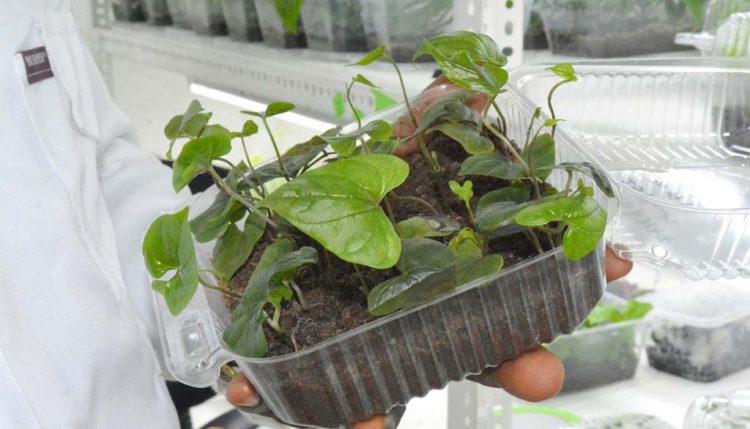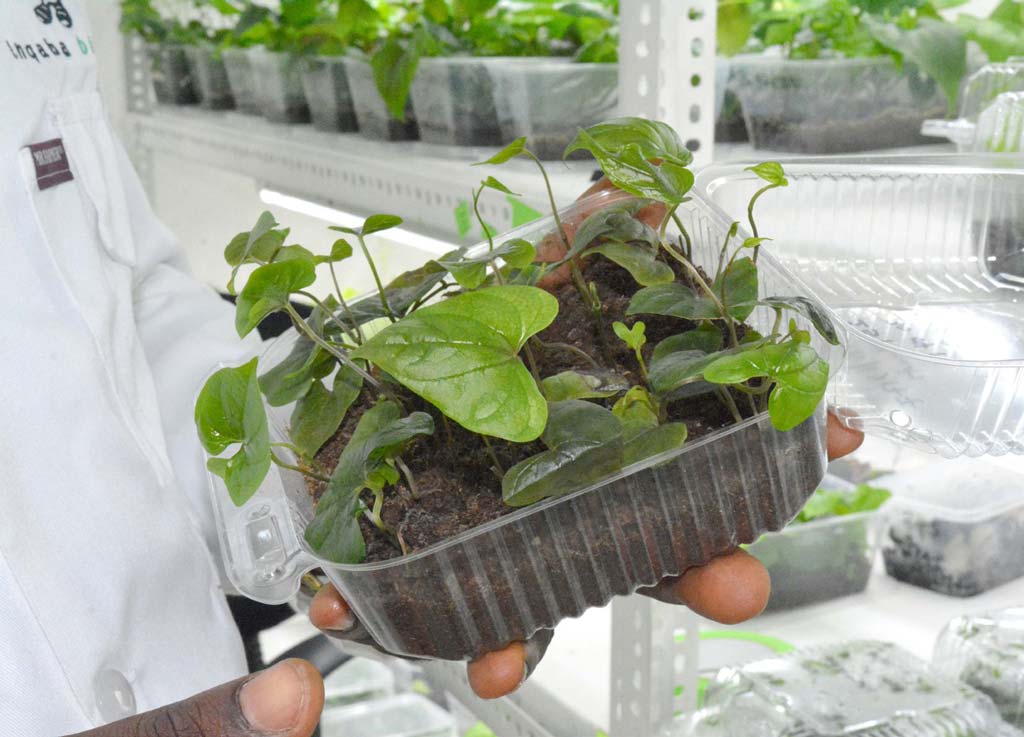
Semi-Autotrophic Hydroponic technology works with yam too!
Yam is a staple food crop for over 300 million people in the world with West Africa accounting for 95% of total world production. Seed yam supply is a critical challenge among yam producers due to low multiplication ratio. Seed yam tuber (SYT) scarcity has compelled farmers to neglect seed health, resulting in poor tuber quality, yield loss, and declining production. This has caused many farmers to gradually draw back from venturing into yam production.
Availability and access to clean foundation seeds is another problem that yam farmers face. This subsequently means farmers that have been recycling seeds are the ones still in the business.
Recycling seeds means recycling viruses, pathogens, and diseases.
So what then is the solution? These and many more problems are what the Semi-Autotrophic Hydroponic (SAH) technology aims to solve.
SAH is a licensed technology targeted at mass propagation of virus-free plants of tissue culture origin. It is a low-cost and easy to adapt technique suitable for commercial seed production and enhanced multiplication in breeding programs. This technology has been used for seed production in clonal crops such as potato and cassava and recently, yam. It is a sustainable and cost-effective seed multiplication technique.
The SAH facility for yam started in IITA-Ibadan in April 2017 with the intention of expanding the scope of technologies targeted at overcoming seed yam production challenges. Pelemo Olugboyega, IITA Ph.D. candidate working on seed production technologies focused on yam explained the benefit of the SAH technology: “It has the potential to complement other alternative technologies that focus on pre-basic and basic seed production. The SAH facility is highly efficient in terms of set-up cost and it is easy to learn and adapt. This technology produces plants at a fast and efficient rate, sufficient to meet the seed needs of yam growers.”
He also added, “Yam, among the clonal crops, is the most challenging because of seed yam cost and the dual purpose (food and propagule) the crop serves when sourcing for planting material. With the SAH technology, it is easy to have rapid production of clean planting materials available for farmers so that seed costs are not on the high side and yam is made available in the market.”
At present, about six elite IITA and popular market varieties of yam sourced from the tissue culture laboratory of IITA’s Genetic Resources Center (GRC) are being cultured for multiplication to form the starter stock or mother plants of plantlets in the Yam Improvement Program facility. This facility has the potential to significantly contribute to the breeder and foundation seed need along the yam seed value chain.
Ongoing activities which SAH can significantly impact include demand creation strategies and trials, partnership development with IITA GoSeed and projects with varietal and seed development mandate, outscaling the technology to seed companies approved by the National Agricultural Seeds Council (NASC) and farms with capacity for facility and license.

